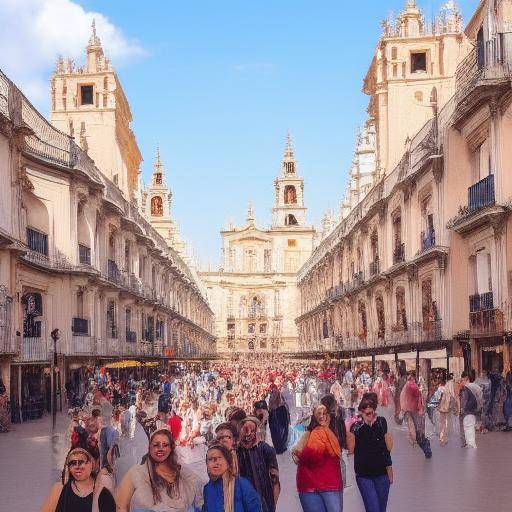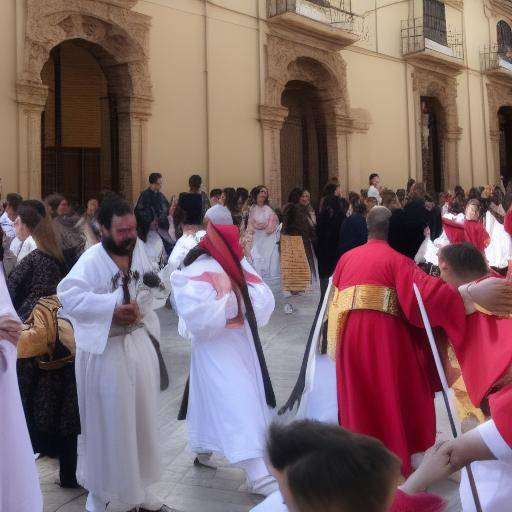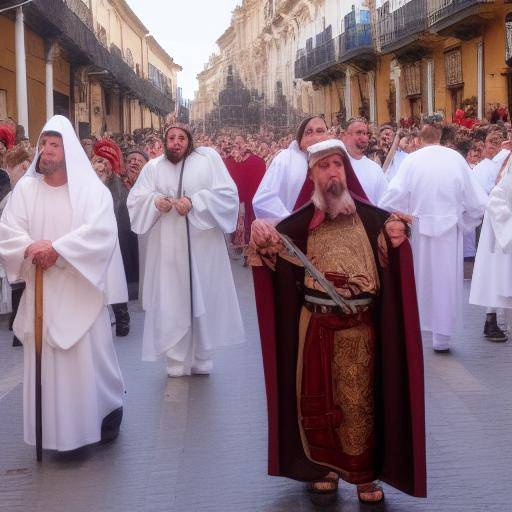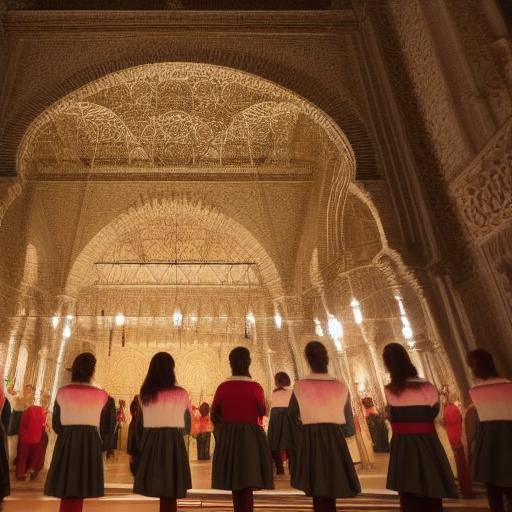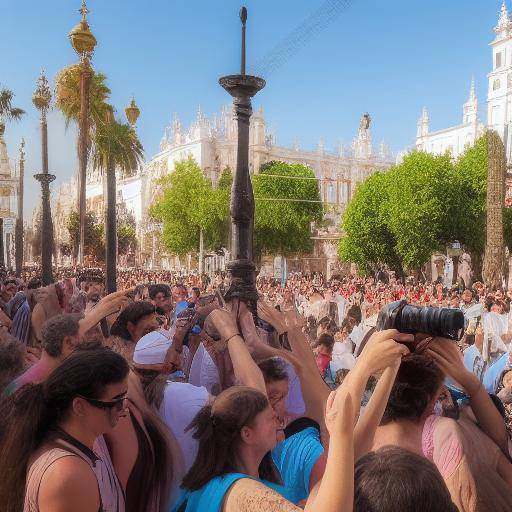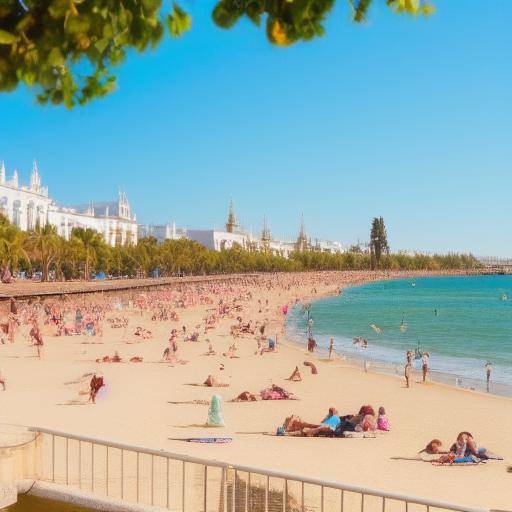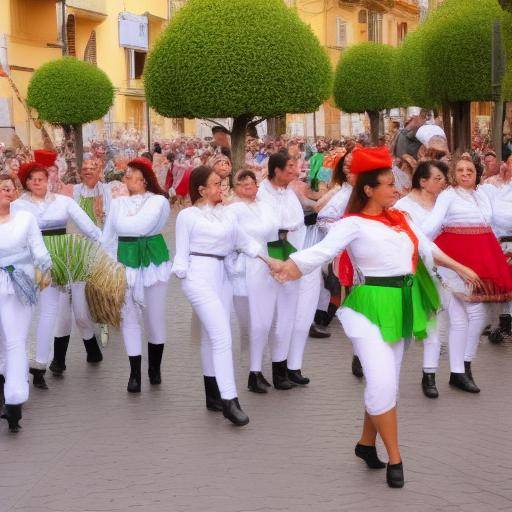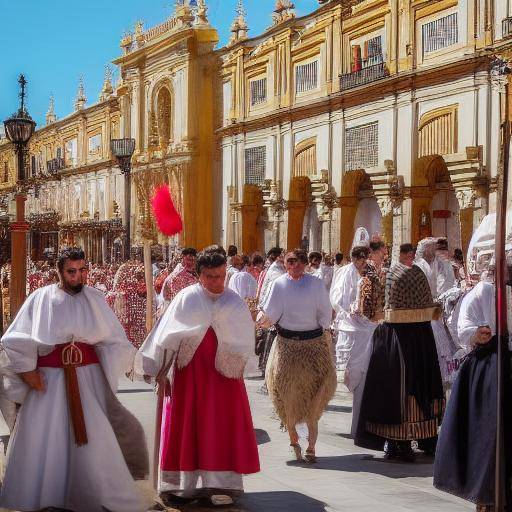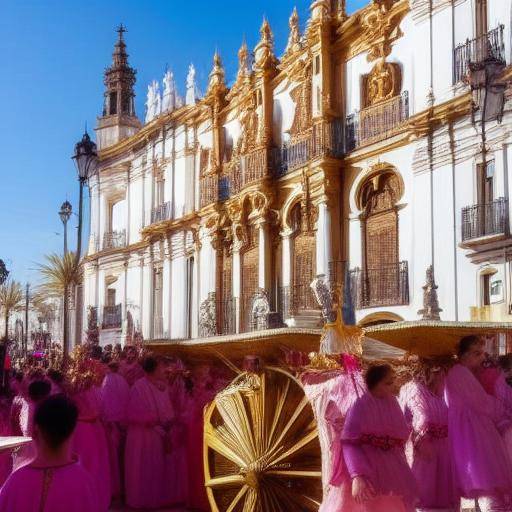
Holy Week in Seville is a unique celebration that combines tradition, religious fervor and a festive atmosphere. Every year, millions of visitors come to this Andalusian city to witness the impressive processions, immerse themselves in local culture and live an unforgettable experience. In this article, we will explore the historical and cultural wealth of the Holy Week in Seville, the Spanish traditions that envelop it, as well as practical advices to enjoy the most of this celebration.
Introduction
Holy Week is a Christian festival commemorating the passion, death and resurrection of Jesus Christ. In Spain, this celebration acquires a special dimension, particularly in cities such as Seville, where the processions, religious images, music and fervent devotion create a unique and moving atmosphere. Over the centuries, Holy Week has become an integral part of the cultural identity of Seville, attracting people from around the world who want to live this incomparable experience.
History and Background
The Holy Week has deep historical roots dating back to the 16th century in Seville. During this time, the Catholic Church promoted the celebration of Holy Week through processions to promote faith among the faithful. Over the years, these processions became a way of manifesting devotion and respect for religious images, becoming a tradition rooted in Sevillian society.
During the 18th century, numerous brotherhoods and brotherhoods were founded that took the responsibility of organizing the processions and taking care of religious images. These organizations played a crucial role in the development and continuity of Holy Week in Seville, preserving the cultural traditions and legacy that characterize it to this day.
In the 19th and 20th centuries, Holy Week experienced a rebirth with the restoration of numerous works of religious art and the construction of impressive procedural steps. These efforts helped consolidate Holy Week as one of the most important celebrations in Seville, attracting national and international attention.
Analysis in Deep
The Holy Week in Seville represents a unique fusion of religion, art, music and tradition. The processions, which take place throughout the week, are characterized by the participation of the sisterhoods, which parade through the streets of the city carrying steps that represent scenes of the Passion of Christ. These steps, richly ornamented and transported to shoulders by ribs, constitute an artistic and devotional manifestation that impresses the spectators.
Music plays a fundamental role in the processions, as music bands interpret processional marches that accompany the walk of the steps. This solemn and touching music contributes to creating an emotional and transcendental atmosphere that envelops the attendees.
Religious fervor and devotion are central aspects of Holy Week in Seville. The Sevillians live this celebration with an emotional depth that manifests itself in expressions of respect, recollection and surrender. Faith and rooting to religious traditions are transmitted from generation to generation, consolidating Holy Week as a cultural and spiritual phenomenon of great relevance.
Comprehensive review
The celebration of Holy Week in Seville generates a significant impact on the local economy, attracting a large number of tourists and generating a significant flow of revenue for the city. Hotels, restaurants and shops benefit from this influx of visitors, which contributes to the economic dynamism of the region.
However, Holy Week also poses logistical and organizational challenges, as the coordination of the numerous processions, the safety of the attendees and the maintenance of the streets require careful planning by the local authorities. The management of traffic, the cleaning of public roads and security are fundamental aspects that must be effectively addressed in order to ensure the good development of the celebration.
The Holy Week in Seville has evolved over time, adapting to the demands and expectations of the current society. The incorporation of new technologies, the diffusion through the media and the promotion at the international level have helped to expand the scope and relevance of this celebration, placing Seville as an indispensable destination to live Holy Week.
Comparative analysis
The celebration of Holy Week in Seville shares similarities and differences with other Spanish traditions. For example, Easter in Malaga, another Andalusian city, has unique features in terms of its procedural steps, religious images and musical traditions. Likewise, the Holy Week in Toledo, a city with a profound medieval history, exhibits a distinctive atmosphere and a heritage richness that distinguishes it from Seville.
However, all of these celebrations share the common element of religious devotion, artistic manifestation and entrenchment of traditions, which enriches Spain's cultural heritage and enriches the diversity and complexity of Easter holidays in the country.
Practical Tips and Recommendations
To enjoy the Holy Week in Seville, it is advisable to plan in advance the visit to the city. Here are some practical suggestions:
- Book accommodation in advance, as the demand during Easter is high.
- Check the schedule of processions and events to assist those of greater interest.
- Prepare for the crowds and crowds that occur on the streets during the processions.
- Enjoy local gastronomy, with special attention to culinary delights typical of this time, such as oil cakes and pestiños.
Conclusions
The Holy Week in Seville represents an incomparable festival that merges tradition, religious fervor and artistic emotivity. This celebration, rooted in the history and culture of the city, projects a unique experience that captivates visitors from around the world. In understanding its historical importance, its current manifestations and its links with other traditions, the wealth and significance of Holy Week in Seville are even more appreciated, making it an invaluable cultural legacy.
Frequently asked questions
When is Holy Week celebrated in Seville?
Holy Week is celebrated every year during the last week of Lent, culminating in the commemoration of Good Friday and Resurrection Sunday.
What is the origin of the Holy Week processions in Seville?
The processions of Holy Week originate in the sixteenth century, when the Catholic Church promoted these manifestations as a way of spreading faith and commemorating the Passion of Christ.
What is the role of sisterhoods and brotherhoods in the Holy Week of Seville?
Brotherhoods and brotherhoods play a key role in organizing and carrying out processions, assuming responsibility for taking care of religious images and coordinating processions.
What types of processional steps can be seen during Holy Week in Seville?
During the Holy Week in Seville, you can see different types of procedural steps, which represent scenes of the Passion of Christ, as well as advocations of the Virgin Mary and other saints.
What is the music that accompanies the processions of Semana Santa in Seville?
The processions of Semana Santa in Seville are accompanied by bands of music interpreting processional marches, funeral music and religious pieces, which contribute to creating a solemn and emotional atmosphere.
Are Easter celebrations in Seville recommended for the whole family?
The celebrations of Easter in Seville are suitable for the whole family, as they offer a cultural, religious and artistic experience that can be appreciated by people of different ages.
Recommended External Links
- Cultural Heritage of the Holy Week in Seville
- Tourism in Seville and Easter
- Traditional cuisine of Easter in Andalusia
With this, we hope to have offered you an integral vision of the Holy Week in Seville, its traditions and its relevance in Spanish culture. This holiday represents a cultural treasure that deserves to be explored and appreciated, and we are sure that your experience in living it will be enriching and touching.

